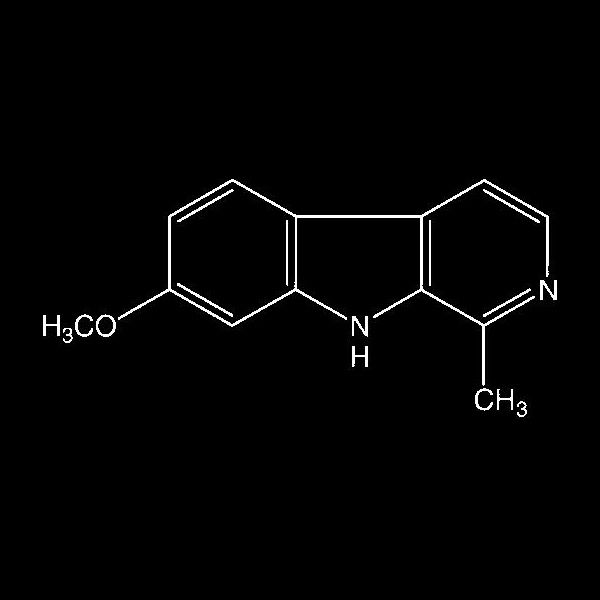· Webmaster Ayaselva · Medicinal Plants · 2 min read
Harmine a fascinating molecule found in the ayahuasca vine
Ayahuasca compound harmine shows neuroprotective and cognitive benefits.

Harmine, a natural β-carboline alkaloid, is found in several plants, including the Banisteriopsis caapi vine, used to prepare the hallucinogenic beverage ayahuasca. This compound has garnered significant attention due to its potential neuroprotective and cognitive-enhancing effects. A systematic review of preclinical studies reveals that harmine may reduce brain damage, improve memory, and offer various therapeutic benefits.
In cell culture studies, harmine showed protective effects against glutamate toxicity, which can damage brain cells. For example, harmine significantly reduced cell death in mouse hippocampal cells exposed to glutamate, suggesting it can protect neurons from excitotoxicity. This protective effect is likely due to harmine’s ability to inhibit certain harmful cellular processes and promote cell survival mechanisms.
Animal studies further support harmine’s beneficial effects on the brain. In mice, harmine improved performance in memory tasks, indicating enhanced short-term and spatial memory. Rats treated with harmine also showed increased levels of brain-derived neurotrophic factor (BDNF), a protein crucial for brain health and cognitive function. These findings suggest that harmine can positively influence brain plasticity and memory.
Moreover, harmine exhibited antioxidant properties, reducing oxidative stress markers in the brain. It also decreased inflammation and promoted the expression of genes associated with memory and learning. These combined effects highlight harmine’s potential as a neuroprotective agent that can support brain health and cognitive function.
Despite these promising results in preclinical studies, more research is needed to understand harmine’s effects in humans. Some human studies with harmine-rich ayahuasca suggest potential cognitive benefits, but the evidence is not yet conclusive. Future research should focus on clinical trials to explore harmine’s therapeutic potential for neurodegenerative disorders and cognitive impairments.
Harmine’s diverse pharmacological actions make it a compound of great interest for developing new treatments for brain health. By reducing brain damage, enhancing memory, and offering neuroprotection, harmine could play a vital role in managing neurological conditions and improving cognitive function. As research continues, harmine’s full potential in medical applications may become clearer, offering hope for new, effective treatments derived from natural sources.